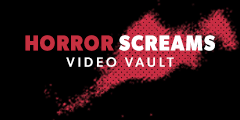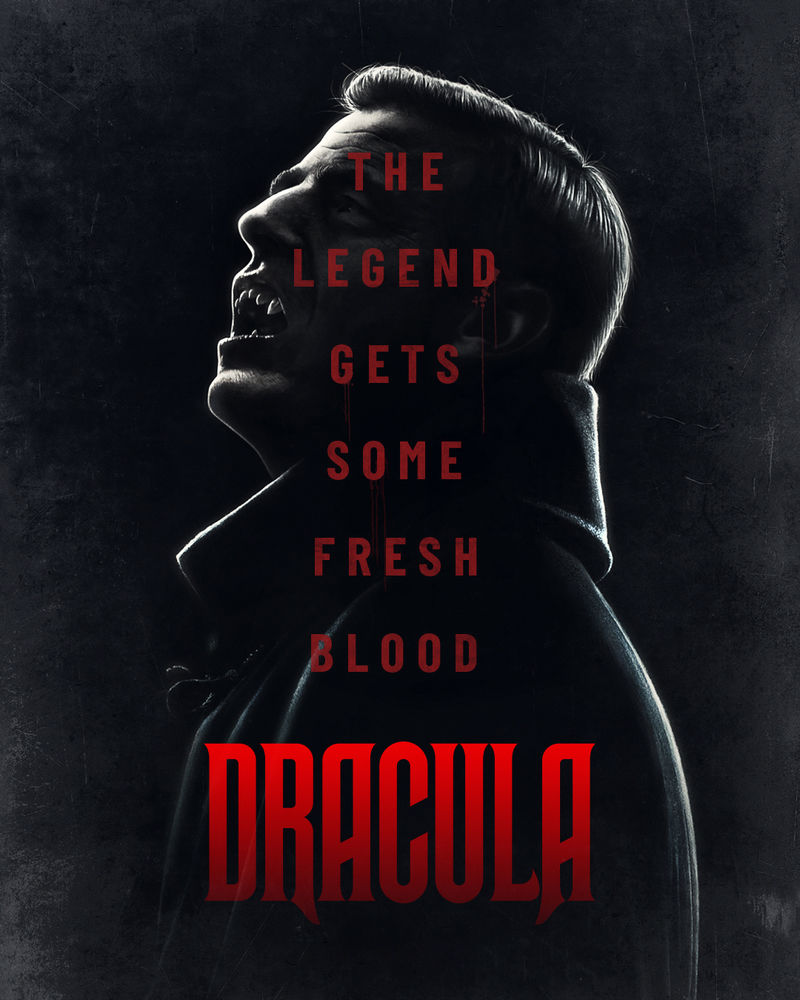DRACULA *** UK 2020 Directed by Jonny Campbell, Paul McGuigan, Damon Thomas. Written by Mark Gattis, Steven Moffat. 3 x 90 minute episodes.
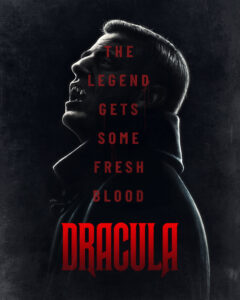 With exterior shots employing the same castle as Herzog’s NOSFERATU and interiors filmed at Hammer’s beloved Bray Studios, Mark Gattis’ love of classic horror is all over this ambitious BBC Stoker adaptation, dramatized over three feature length episodes.
With exterior shots employing the same castle as Herzog’s NOSFERATU and interiors filmed at Hammer’s beloved Bray Studios, Mark Gattis’ love of classic horror is all over this ambitious BBC Stoker adaptation, dramatized over three feature length episodes.
The opener, “The Rules of the Beast”, is framed (in a nod to the book’s structure) as the testimony of Jonathan Harker (an effectively unhinged John Heffernan) in a physically and emotionally distressed state after his experience with Count Dracula (Claes Bang). This Count is a handsome, cocky Cockney much of the time though appears initially as a heavily-accented old man when in need of sustenance. Bang has fun as a very modern, jokey / predatory and intriguingly asexual Dracula (a feed is a feed regardless of gender or sexuality) and episode one’s wraparound at a Budapest convent also enables a particularly snappy, witty turn from Dolly Wells as Sister Agatha, whose true identity is unveiled in an amusing climactic twist. The episode doesn’t stint on physical horror – as so many BBC adaptations of classic genre tales have – so we get to enjoy dead babies, an arterial-spraying beheading and a stand-out sequence of naked Dracula tearing himself out of his wolf incarnation while he bids to manipulate a gathering of stake-wielding nuns.
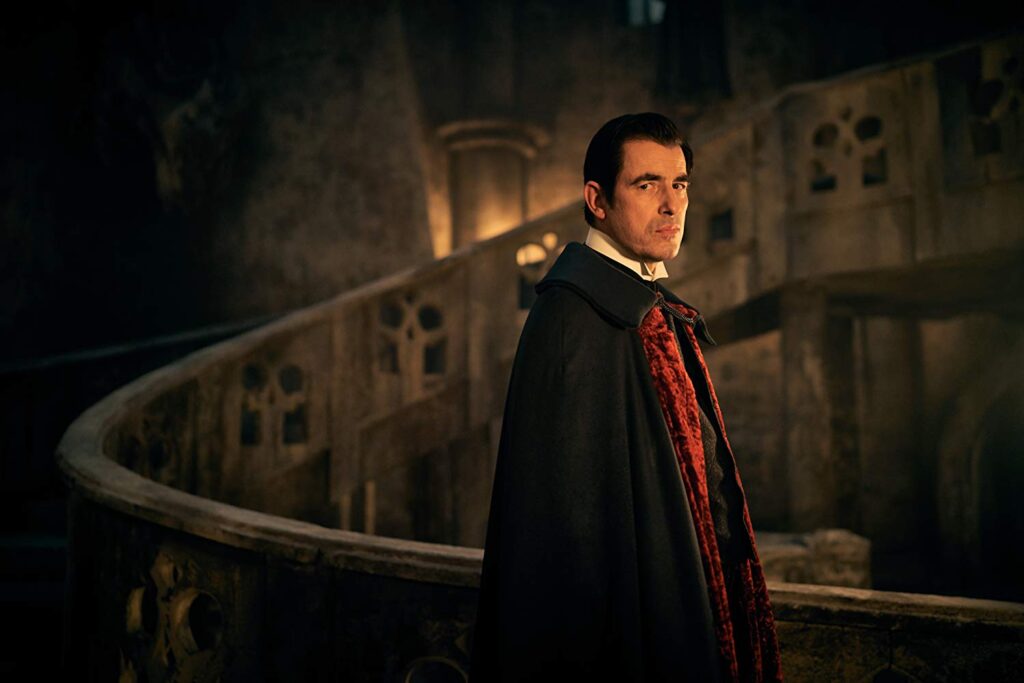
Episode two, “Blood Vessel” takes the form of Dracula’s recollections to Agatha over a chess game, though the structural gimmick works less well this time. Dracula’s broad diet – designed to absorb multiple cultures – is reinforced as he takes equal delight from a duchess and a deck hand, and the format allows for an evocative feature length depiction of the ill-fated Demeter voyage that brings the Count to Whitby (a set piece missing from certain key DRACULA movies). As the seven-strong crew is decimated, tension is sustained, though there is increasingly the sense of Gattis and Moffat throwing everything into the mix, from an Amicus-style crawling hand to scenes of Dracula walking on a sea bed and commanding insects. There’s even a sequence that (distractingly) bids to answer a question posed by Eddie Izzard during one of his best ever stand-up shows: “Does ‘fingers’ work?” The showrunners’ mission to subvert expectations at every turn in the pursuit of twists and turns continues with the slightly wearying curveball at the end of “Blood Vessel”.
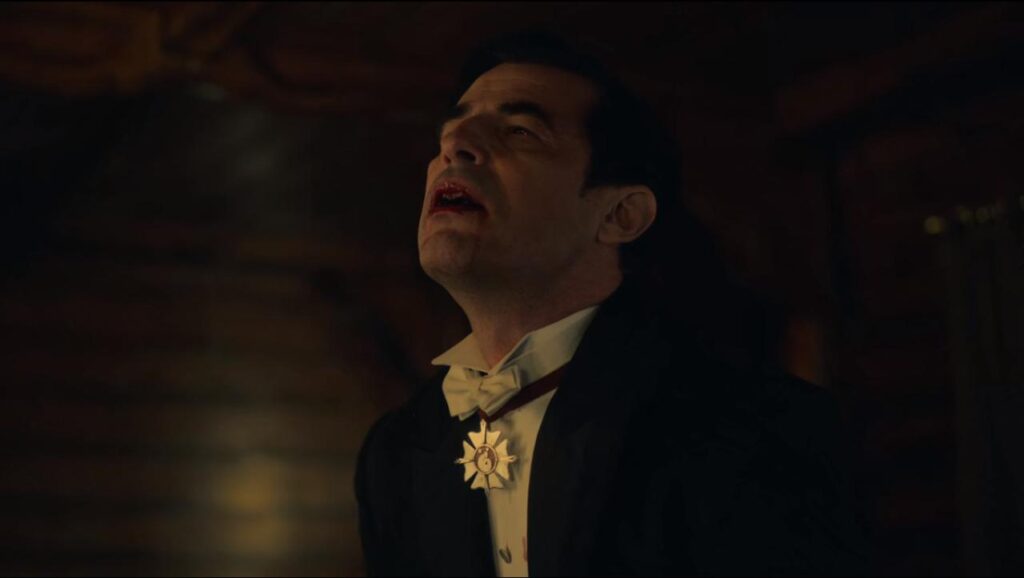
Series finale “The Dark Compass” is where it falls apart. In an ill-conceived nod to DRACULA 2000 (or, more likely, Hammer’s DRACULA A.D. 1972), Dracula wakes up after 123 years underwater, adjusts to technological advances, confronts a descendant of Agatha and pointless modern incarnations of the novel’s characters (including the always-boring Quincey The America) show up. The momentum of the earlier episodes is sapped by scenes of Dracula Skyping / texting and the arrival of his comically fussy lawyer Renfield (Mark Gattis). Location filming at Whitby Abbey provides some great individual images but any sense of atmosphere and threat is largely lost. There’s a nod to BLOOD FOR DRACULA when the Count projectile vomits blood after feasting on a cancer victim, but the shortcomings of this interpretation of Dracula are exposed in the contemporary setting, and the ultimate pay-off is confusing and dramatically flat. Gattis and Moffat clearly set out to keep the audience on their toes with a new vision of an endlessly filmed classic, but episode three comes off as more than slightly desperate. That said, it still finds time for notable moments: a suitably grim, rotted walking dead child and the use of Robbie Williams’ horrible “Angel” as accompaniment to a scene of someone being cremated alive. Talk about a fate worse than death.
Review by Steven West
